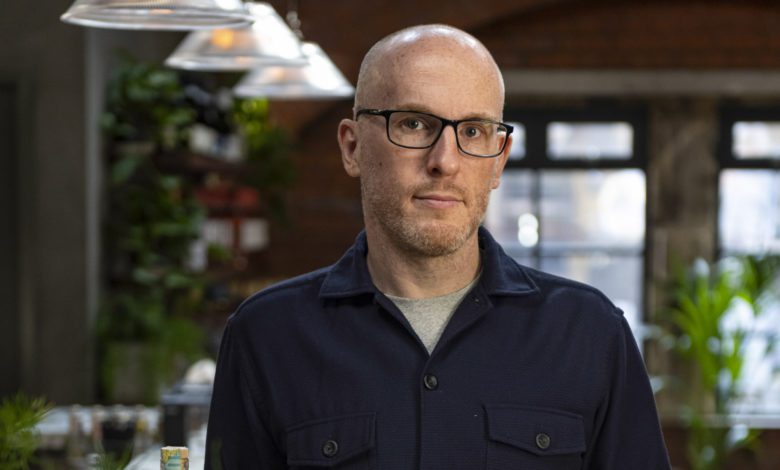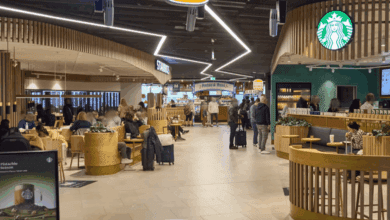“It is still a very toxic environment at times”: Q&A with Tim Etherington-Judge
Tim Etherington-Judge founded Healthy Hospo after suffering from burnout caused by his job in hospitality. During Mental Health Awareness Week, he told Catering Today of the importance for the industry to keep in mind the mental wellbeing of its workers

Register to get 1 free article
Reveal the article below by registering for our email newsletter.
Want unlimited access? View Plans
Already have an account? Sign in
Do you think there is a problem within the mental health of hospitality workers in particular?
Absolutely, I think there’s a number of aspects of most hospitality work that makes it particularly challenging to maintain good mental health. Things such as trying to sleep outside of your circadian rhythms, because many times in hospitality you have long days, and you’re working when your body wants to be asleep, and trying to sleep when your body wants to be awake, which has a big impact on stress. Poor nutrition due to lack of time is another factor and then there’s also financial stress, especially given the current cost of living crisis.
Lastly there’s also the aspect of loneliness and isolation when working in hospitality because you’re working outside of the normal world, which is very much built around people that work nine to five. You kind of live in this almost shadow world.
Considering all these factors, do you think the mental health of hospitality workers has been declining in recent years or has it always been like this?
Yes, I think that it’s not been on an upward trajectory for a number of reasons that we’ve been through lately. Ironically, I think Covid for a lot of workers turned out to be quite positive, especially for those who were lucky enough to receive furlough or had time off. A lot of people I know picked up exercise or reconnected with hobbies that they hadn’t done for a long time. They ate healthier, because they had time to cook at home.
I also know there were quite a number of people that used Covid time to reflect and reassess their life and just never never went back to their job. They moved into different industries.
So I don’t know if mental health is worse now than it was five years ago, for example, but from my experience it doesn’t seem to have gotten any better.
What role do vacancies play in the mental health of workers?
Every hospitality business is understaffed at the moment. So as a result, everybody’s being asked to work longer hours. People are doing way, way more hours in an industry that already is renowned for the amount of hours that you do normally.
At the same time, venues that are not operating their full staffing capacity see a reduction in the quality of service, which will probably lead to more customer complaints. And most of this has been caused by Brexit, because a lot of hospitality businesses relied on a global and multicultural workforce, which is not possible anymore.
Can you tell me a bit more about Healthy Hospo and why did you start it?
I’ve worked in hospitality and drinks my whole life. In 2016 I was working as a global brand ambassador for a big drinks corporation. And this job involved being away from home 250 days of the year, drinking excessive amounts of cocktails – which was part of my job – but it all led to suffering extreme loneliness. Then in November of that year I tried to commit suicide in a hotel room and it was through that night, and the feeling of being extremely lonely and scared, that I decided to speak publicly about my experience.
And to my surprise I received hundreds of messages from people privately telling me their stories of struggling in silence. Problems about their mental health and physical health caused by the industry. And I understood that there were a lot of people experiencing something similar. Why was no one talking about this? At that moment I knew I had to do something so that became the motivation behind Healthy Hospo.
I saw that Healthy Hospo offers a variety of resources and courses, can you tell me what they consist of?
Our online courses are designed to complement the in person training that we do, and also give people, who are unable to come to our courses, access to our training.
Our lessons cover five major pillars which are the foundation of workers’ wellbeing, which are sleep, nutrition, mental health, social and nature connection, and exercise. We’ve got a foundation bundle around all of those pillars, which are filled with advice, tips, things you can do to help improve them, how to sleep better, how to eat better, how to make sure you exercising regularly, how to manage stress and anxiety.
And then we have an extra level of courses which are a deep dive into a particular subject. So for example, we have a course on sleep and we also have lessons on leadership, because a lot of problems are often caused by poor leadership.
Based on your experience, and what you’ve been witnessing for these years, what do you think hospitality business owners should do whenever one of their employees says that they’ve been struggling with their mental health?
I think the first thing to do if one of your employees comes to you to say that they’re struggling is to be a human being and show compassion. That’s the first step. The second one is that there is an increasing number of resources available, health lines through national organisations like the Samaritans, and even more specific ones, such as the Burnt Chef Project or the Drinks Trust.
Managers should not be expected to be mental health experts, so they should redirect their employees to a resource that could actually help them. They should be aware of the signs, though, and be compassionate and caring enough so that their staff is comfortable to be able to come and talk to them. Things like putting up posters in the staff areas with contact numbers are effective because they create a space of psychological safety.
It’s surprising how many hospitality workers don’t know about organisations that are set up exactly for that purpose and are specifically there for those working in hospitality.
Mental health awareness is becoming more widely talked about in public, but what about in workplaces? Do you think there’s still some stigma preventing people from talking about it with their employers?
It is still a very toxic environment at times. And I think the bad publicity of some celebrity chefs who celebrate bullying, nastiness and abuse are causing extreme damage. These terrible people have made fortunes on the back of, frankly, horrible behaviour and are celebrated by society. As a result a lot of people think that that’s how you succeed in hospitality. So there’s definitely still a huge stigma around it in the industry.







